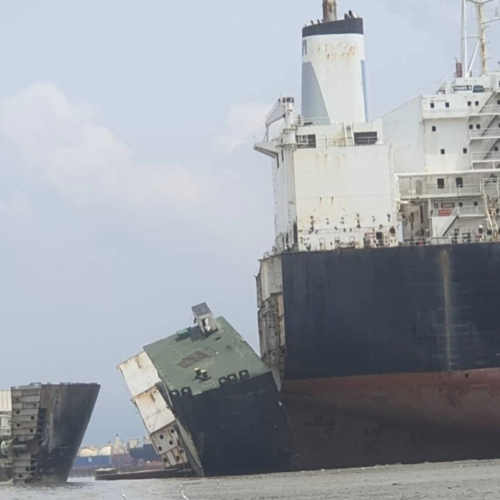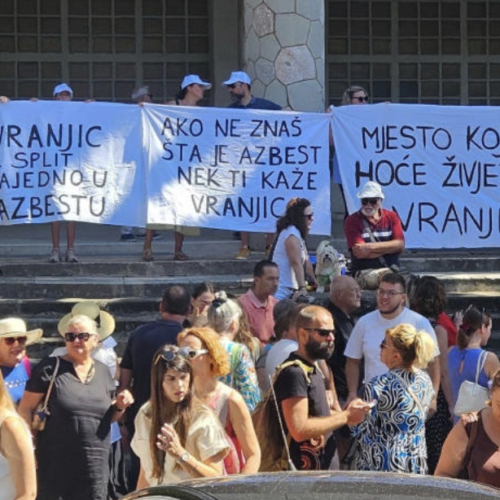TURKEY
Main Location: Aliaga
N°. Yards: 22 companies operating a total of 28 plots
N°. Workers: around 1200
Recycling method: landing
Ship recycling in Turkey is carried out in an industrial zone that is state-owned and leased out to private companies. The yards are located in Aliağa, around 50 km north of Izmir on the Aegean coast in an area that hosts a large cluster of heavy industries. The ship recycling zone was first established by a government decree in 1976. Most of the workers originally come from Tokat and Sivas in Eastern Turkey, and have settled in Aliağa.
The Turkish ship recycling yards apply the so-called landing method. The bow of the vessel is grounded on the shore while the stern is still afloat. The blocks are then lifted by cranes onto a drained and impermeable working area. The yards do not resort to the gravity method, that is, dropping blocks into the water or onto the beach. The negative environmental impact of the landing method is no doubt higher than recycling in a fully contained area. The Platform is of the opinion that the landing method used in Aliağa should be progressively phased out, in favor of the use of fully contained areas for scrapping, since Turkish facilities have scope for improvement.
In 2002, Greenpeace reported poor conditions for workers’ health and the environment in the Turkish shipbreaking yards. The researchers found that no adequate protection was provided for the workers and no proper measures were in place to prevent environmental contamination. As a reaction to the international criticism, the Government of Turkey introduced new procedures for the management of hazardous wastes. In 2009, the NGO Shipbreaking Platform followed up with a new report on downstream waste management. It identified significant progress, though concerns remained related to certain waste streams such as the disposal of heavy metals and PCBs.
Since then, the Turkish ship recyclers and the Government have continued to improve practices in Aliağa, both regarding environmental and social standards, including aligning the legal framework with international environmental conventions.
Whilst conditions have improved over the years, pollution remains a concern. A study conducted in 2019 by the Ministry of Environment found the area and the surrounding environment to be heavily polluted with substances such as heavy metals, polyaromatic hydrocarbons, TBT and dieldrin. High concentrations of heavy metals were found especially in the soil at the ship recycling yards in Aliağa with ship paints identified as the source. In more detailed reports published in 2022, the Scientific and Technological Research Council of Turkey (TÜBİTAK) and Ege University Faculty of Agriculture conducted research on the pollution levels in the Aliağa region.These reports clearly show environmental pollution exceeding national permitted levels, especially in the area where ship recycling yards are located.
NGOs, the ship recycling workforce and local labour rights groups, including Platform's partner Istanbul Health and Safety Labour Watch (IHSLW), still remain concerned about the employment conditions on more general grounds, including the accident rate, the management of hazardous wastes downstream, trade union representation and the lack of transparency on occupational diseases. The recent report findings should serve as a wake-up call for Europe, which needs to take the lead in demanding higher standards and should no longer assume that conditions are satisfactory just because they are seemingly compliant on paper.
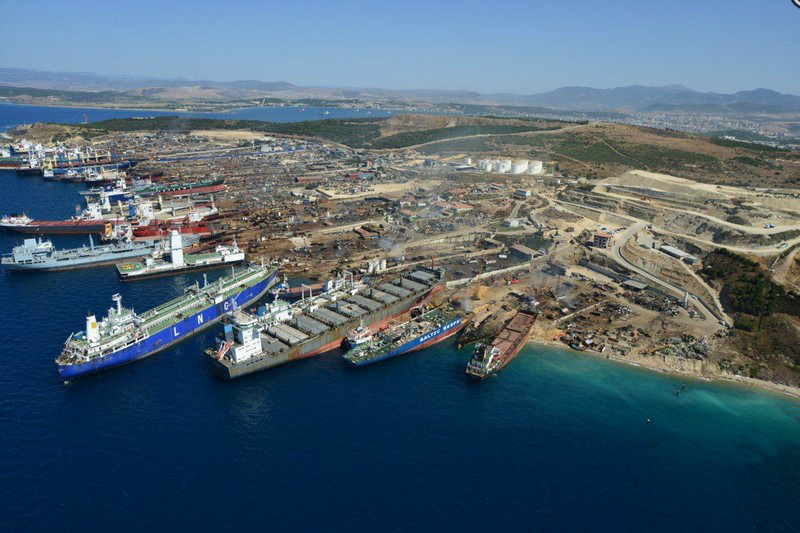
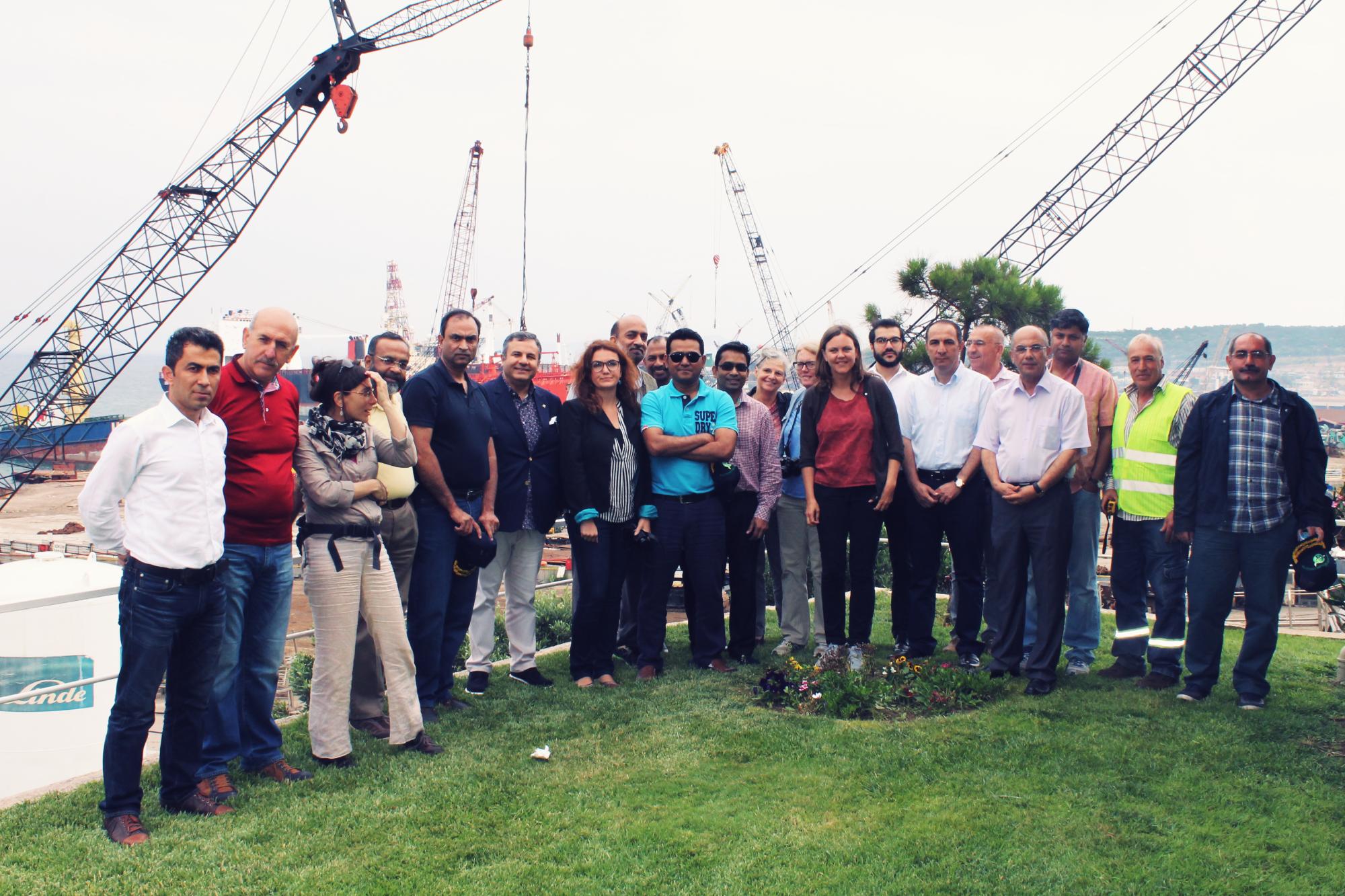
RECOMMENDED READINGS
Latest News
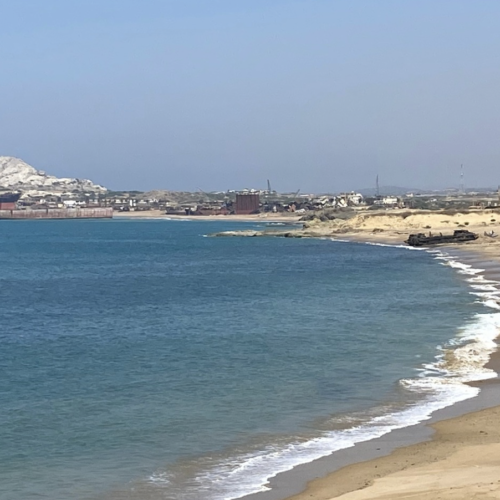
Platform publishes South Asia Quarterly Update #43
Fifteen workers suffered an accident on South Asian beaches in the third quarter of 2025.
... Read More


